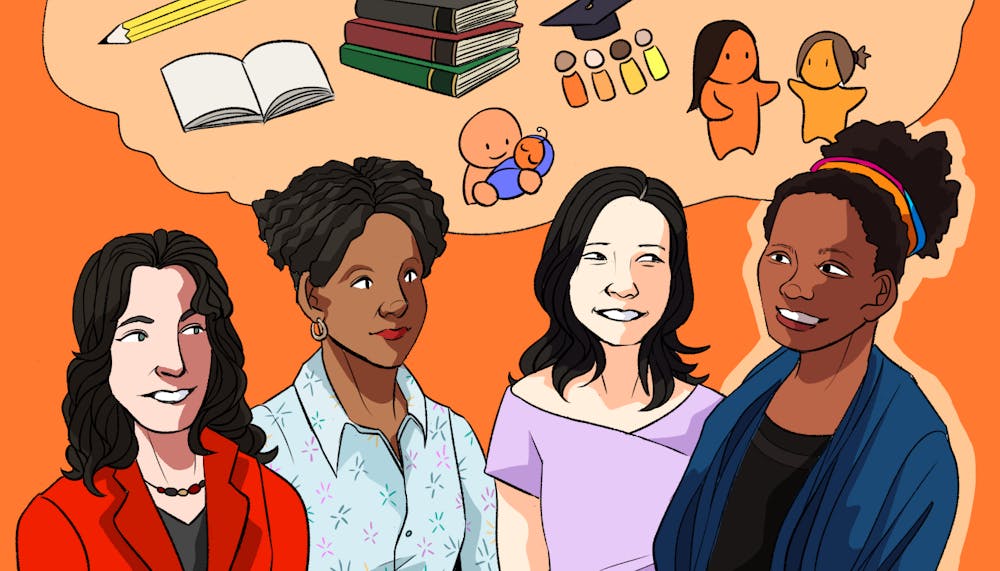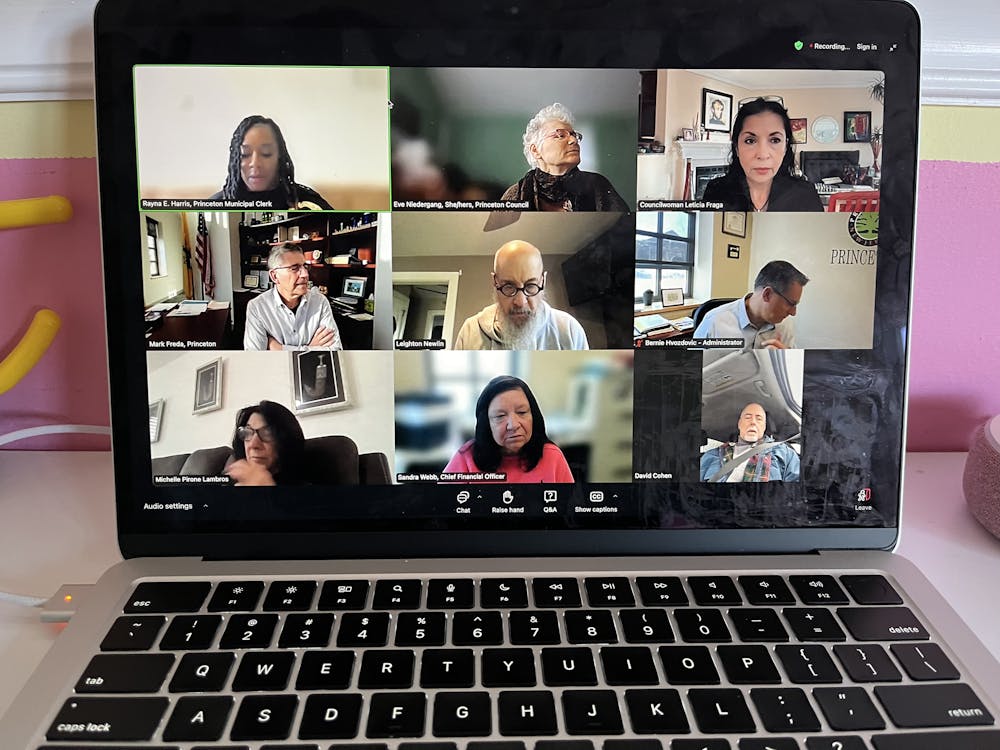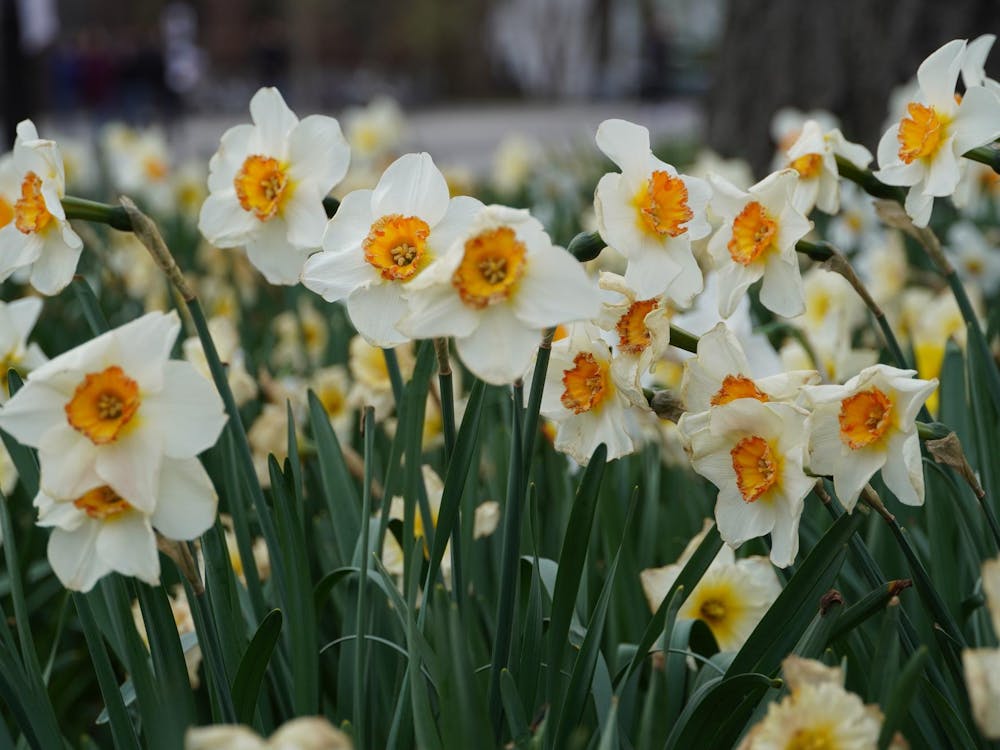As Women’s History Month comes to a close, we wanted to highlight literature curated by some of the University’s incredible female faculty. So many women at the University are not only advancing breakthroughs in their respective fields, but also translating their lived experiences into words that inspire — that move, challenge, and encourage — others.
Faculty members have been asked to navigate an unforeseen academic year in the midst of racial reckoning. Despite the challenges that came with shifting online, connecting with students, and confronting societal tensions, female faculty at the University have continued to channel passion into teaching and creating.
To bring the celebration of women and their contributions to culture, history, and society to The Daily Princetonian, we spoke to a few of the many inspiring female authors working at the University on what it means to be a professor, writer, and mentor during these turbulent times.
While these authors work in fields as diverse as engineering, literature, and social policy, their experiences highlight elements of commonality that have shaped their personal perspectives. These women discussed the balance of work and motherhood, the traditional split between story-telling and academic writing, and their advice to the next generation of female authors. With words of encouragement and stories of perseverance and compassion, this impressive contingent of Princeton professors offered a poignant perspective on the rapidly evolving work of female academics.
Lewis Center for the Arts professor Tracy K. Smith
Watching the world unfold over the past year, Tracy K. Smith, professor and director of the Lewis Center for the Arts’ Program in creative writing, has considered the ways she can encourage open and honest conversation surrounding issues at the forefront of our communities.
As an administrator and educator, Smith has thought about how she can best be present in the moment for her students — all of whom bring with them layered experiences of personhood, race, culture, and gender. The goal, as Smith notes, is to spark “dialogue and support students of color who have been asking for more from this institution.”
As a writer, Smith has leaned on poetry for clarity as she grapples with the racial trauma that “[she] inherits as a member of the community of Blackness.” Much of Smith’s poetry delves into the crux of what it means to have inseparable layers of identity and how being Black and female in America drives many of her emotions and experiences.
Smith recalls how, at the beginning of her career, much of her literary work centered on anxieties that stemmed from America’s influence on other regions of the world and how such priorities inherently exclude others. In many ways, Smith notes, she was conducting a “direct examination of American history” and the unsettling — though not surprising — history of how women and people of color have been commodified throughout American history.
Later, in the midst of her career, Smith also pondered the themes of family and faith, and investigated how each theme is different but also intricately woven with the other. Such ideas were the backbone of her poetry, which is packed with timeless stories about the intersection of familial relations with unwavering faith.
Smith’s work subsequently evolved to address themes beyond personal narratives, and address the realms of ancestry and race. Realizing the urgency of producing poetry which addresses racism, Smith has devoted her efforts to understanding that the struggle for racial justice is part of an ongoing effort that will outlive her, but nonetheless one that requires continuous work.

One of Smith’s most gripping “documentary” poems, “I will tell you the truth about this, I will tell you all about it,” is composed entirely of letters and court deposition statements of African American men enlisted in the Civil War and their wives. Smith mentions that “what [she] loved about writing that poem was that it showed [her] that we have the patterns of behavior that are rooted in bias, in privilege — rooted in process. If we care, and some of us do, we have to be willing to change the processes and challenge the systems that we belong to.”
Writing, even for Smith, comes with its share of challenges. “All writers hold a common wish: to be useful to this moment in time and break ground on what we think is a solution,” Smith notes. However, Smith says that while driving societal change through art forms is necessary, it is important to not lose sight of the opportunities to grow as a writer, a poet, and a student.
And, for those who may be intimidated by the realm of poetry, Smith suggests that “the best thing you can do is forget about what you may have learned about looking for themes, or looking for literary terms. Instead, just pay attention; notice what the poem causes you to feel, to remember, to associate.”
Noting that some of her most supportive peers have been other women, Smith would like to give a shout-out to African American studies professor Imani Perry, whose work Smith described as “important and necessary, as it threads the needle so that we see the connections between our thoughts and families to history.”
Smith’s newest book, “Such Color: New and Selected Poems,” which will be released in October 2021, explores America’s history of historical and contemporary racial injustices and tries to make sense of this world we are trying to heal.
Note from the writers: These models of female creativity and ability underscore the depth of experience within the University’s accomplished community. Though we highlight their words and works now, their achievements continue to engage and inspire even when underrecognized. They remind us that finding your voice, regardless of the form it takes, is crucial as we work toward a world that derives strength from women’s words and actions. Thus, we urge you to carve out spaces for self-expression and recognize the power your words can hold.









